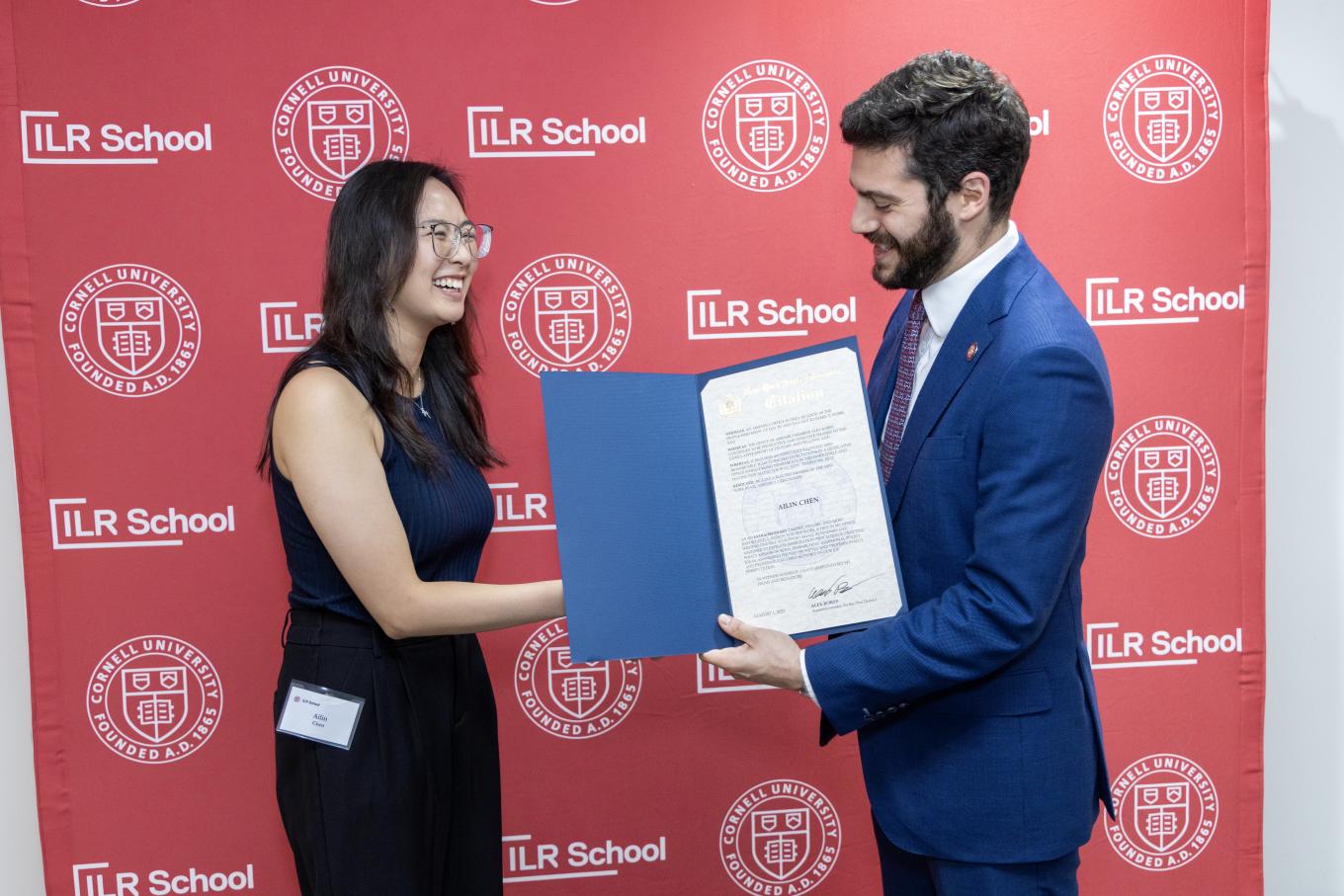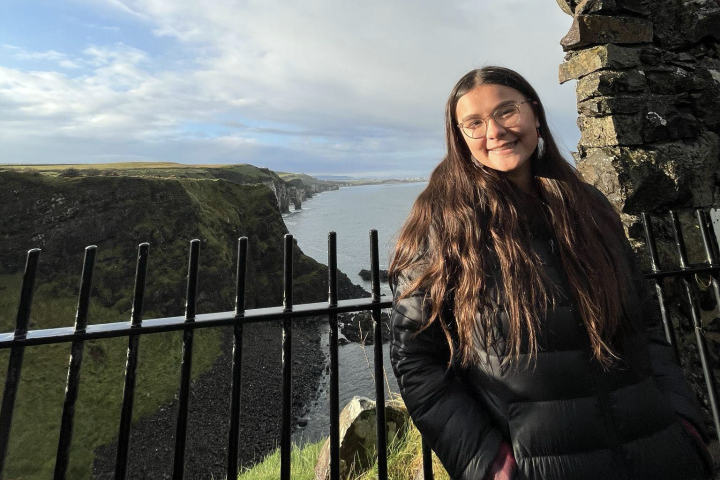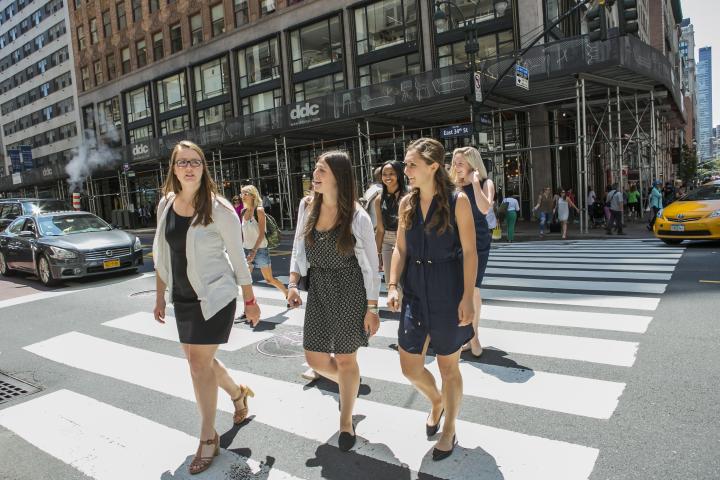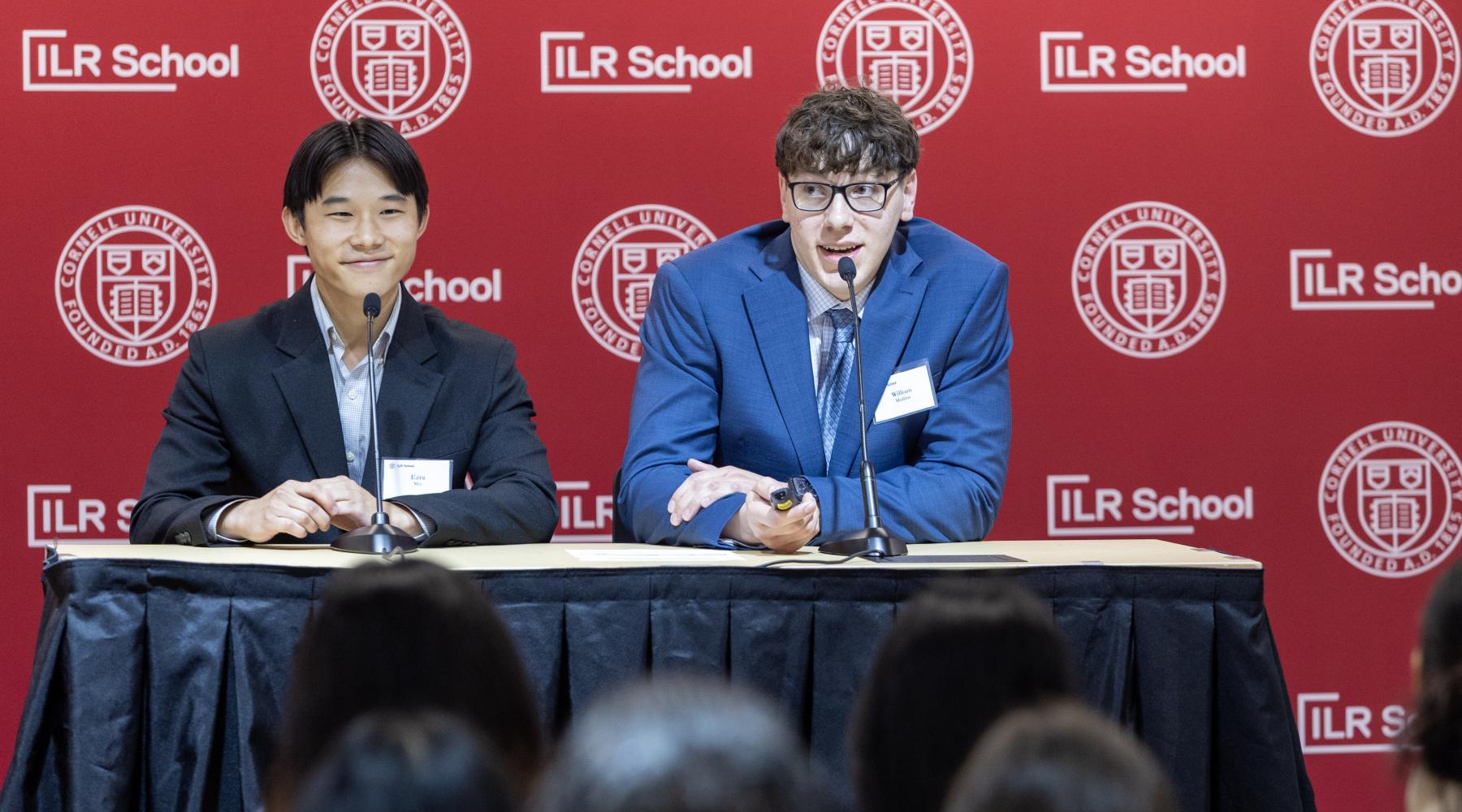
High Road NYC Wraps Its Third Year
On August 1, the High Road New York City fellowship drew to a close. 25 Cornell ILR undergraduates gathered at ILR’s New York City office, joined by the sponsors, mentors and organizers who helped mark a third successful iteration of the program.
“In the three years that we've done this program, we've worked with more than 60 students and nearly 25 partners in unions and advocacy groups, in disability inclusion and nonprofits, social justice and government agencies around the city,” said Brigid Beachler, director of ILR’s Engaged and Experiential Learning Programs, setting the scene for the student showcase. “We're grateful to you for giving our students the opportunity to work with you, to learn with you, from you and from your communities that you serve.”
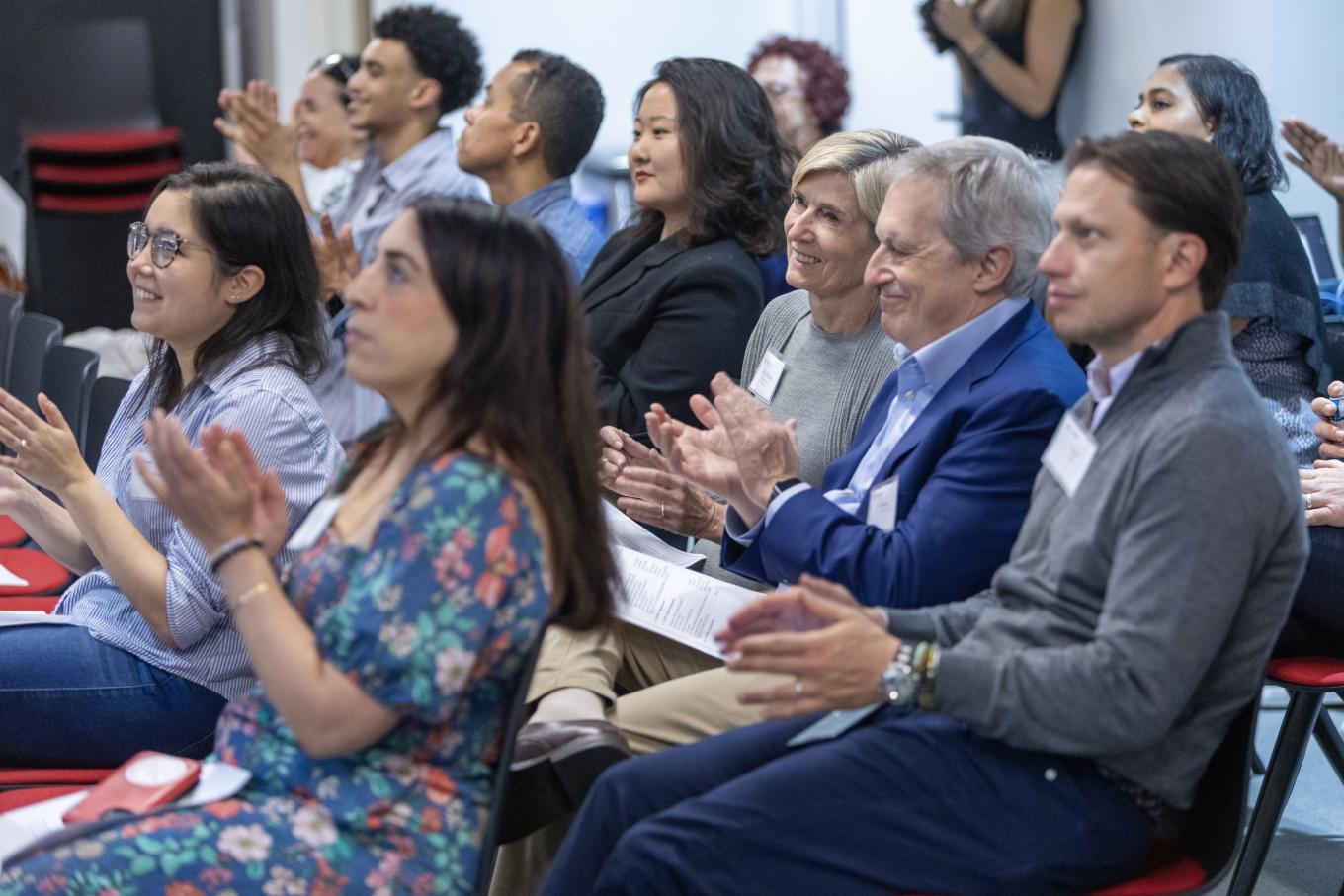
“I think I've said the word community like 500 times throughout this presentation, but community is extremely important,” said Angelina Kostanian '26, who spent the summer at Virginia & Ambinder, LLP. “There's so much minutia that goes into running the community around you, so many little things that build up to be your community.”
Edisa Dashi '28, who spent the summer at Manhattan Community Board 10, learned that “professionalism looks different in every space. In Central Harlem, that meant community relations. It meant connecting with people, and that was also my favorite part.”
“Being from New York City, I've always felt so alone, because the city is huge,” said Dashi. “But working in Central Harlem, I would walk around with Mina [Dashi’s supervisor], and she knew so many people. It felt like home.”
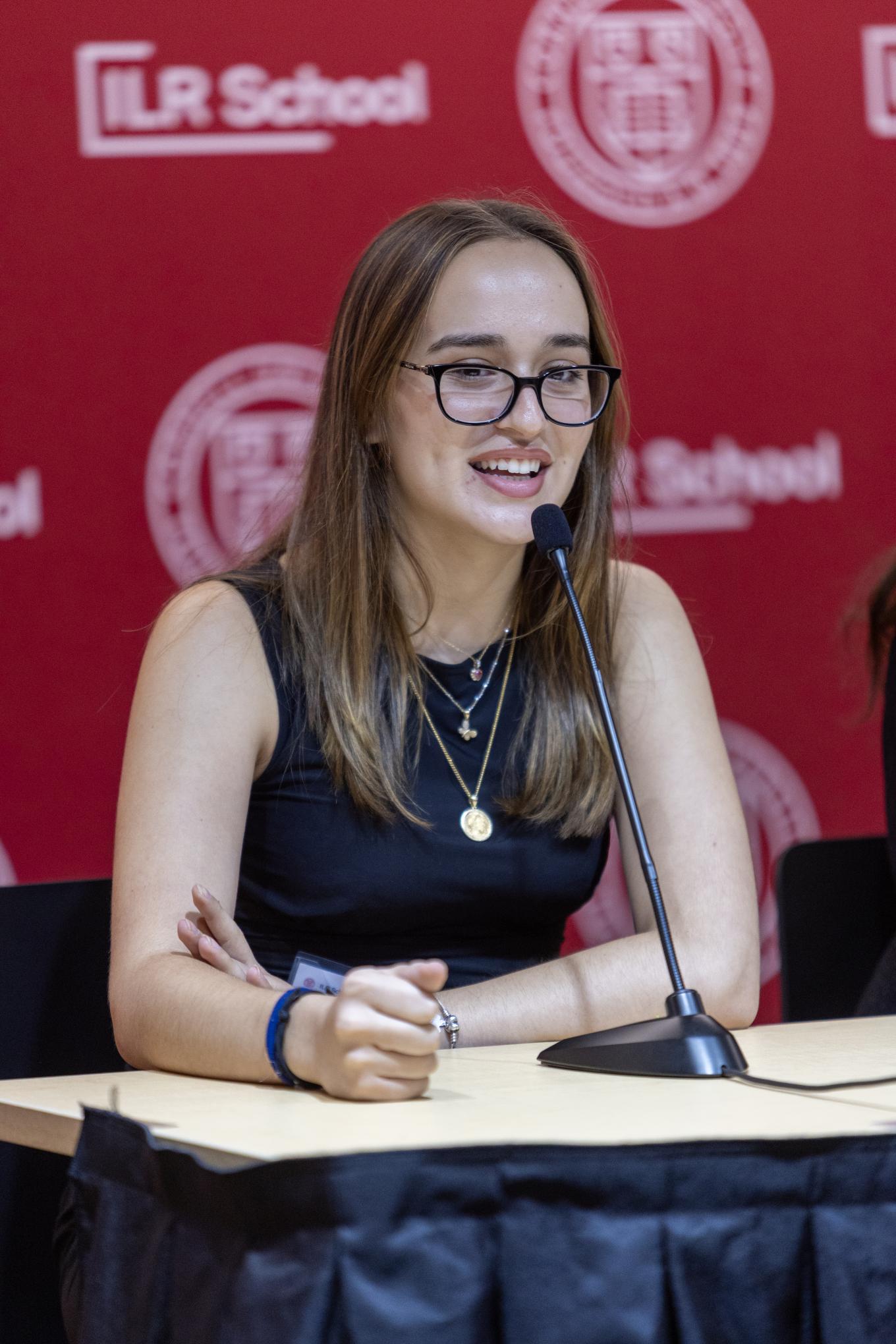
How can the fellows leave their mark on the enormous and infinite New York City in just eight weeks? Most people faced with infinity try to shrink it, try to make it something more controllable. But the key really is to expand it, to repurpose the very infinity that makes connection and impact seem impossible and find within it the infinite potentiality for connection and impact.
“There's a realization that when you work at these smaller and more local levels, a lot of change can be done,” said Nicole Bungo '27, who worked alongside Dashi at Manhattan Community Board 10. “I know this is a point that a lot of us have reiterated, but it kind of gives us hope and optimism that there are ways to help people. There are ways to help underserved communities, and we shouldn't be too pessimistic.”
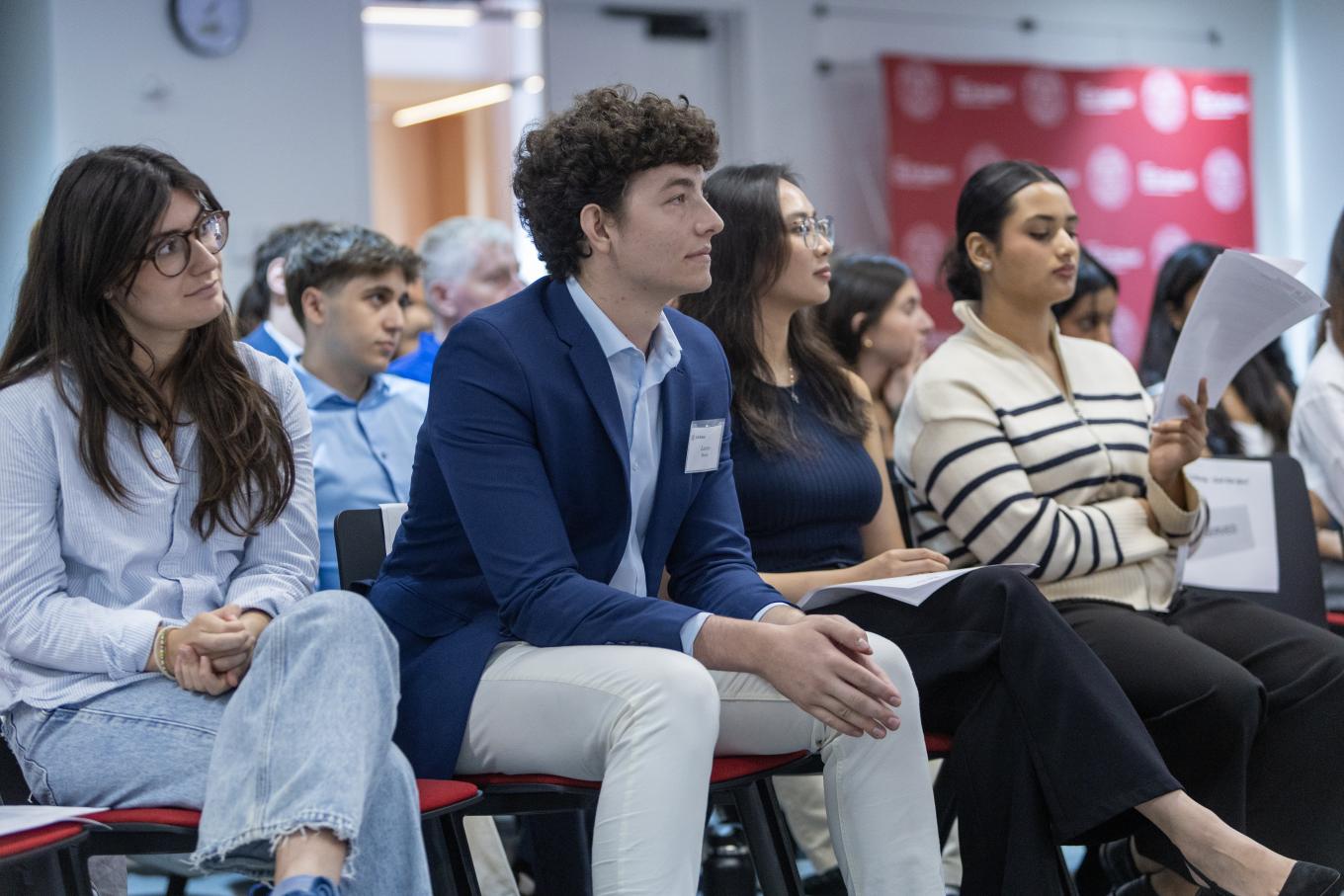
Nikita Khare '27 helped the Brooklyn Chamber of Commerce staff a job fair in July. “I saw volunteers and staff members helping people put together their resumes, and for the first time, the organizations from the data became real. The language support I saw necessary in the data became real.”
“Organizing takes many, many different forms,” shared Reyva Jamdar '27, who spent the summer at the Domestic Employers Network. “Before this fellowship, I mostly thought of organizing as strikes or rallies, but this summer taught me that storytelling, data and relationship building are as important as public demonstrations.”
“It is so easy to walk past the people who stock your shelves, who scan your groceries every day, and really not learn about their lives. Working at Local 338 helped me get out of my comfort zone and my position of privilege. It expanded my worldview,” said Dylan Chamberlain '27, who worked at Local 338 RWDSU/UFCW this summer.
“No task or conversation is a waste,” Julia Brochin '28 reflected on her time in the city and at Adaptive Design Association, Inc. “This is actually something that came from one of our speakers and really stuck with me. I got to meet a lot of new people throughout this experience and build a lot of genuine connections.”
Khare, the final High Road fellow to present, echoed Brochlin in closing: “The community and networks and connections that I saw this summer were truly inspirational.”
Chaos theory tells us that within the apparent randomness of chaotic systems — New York City, life, the cosmos — there are patterns, interconnections, feedback loops, repetitions, fractals and self-organization. The High Road fellows, faced with infinity, did not shrink but expanded, and, after eight weeks, found connection and impact.
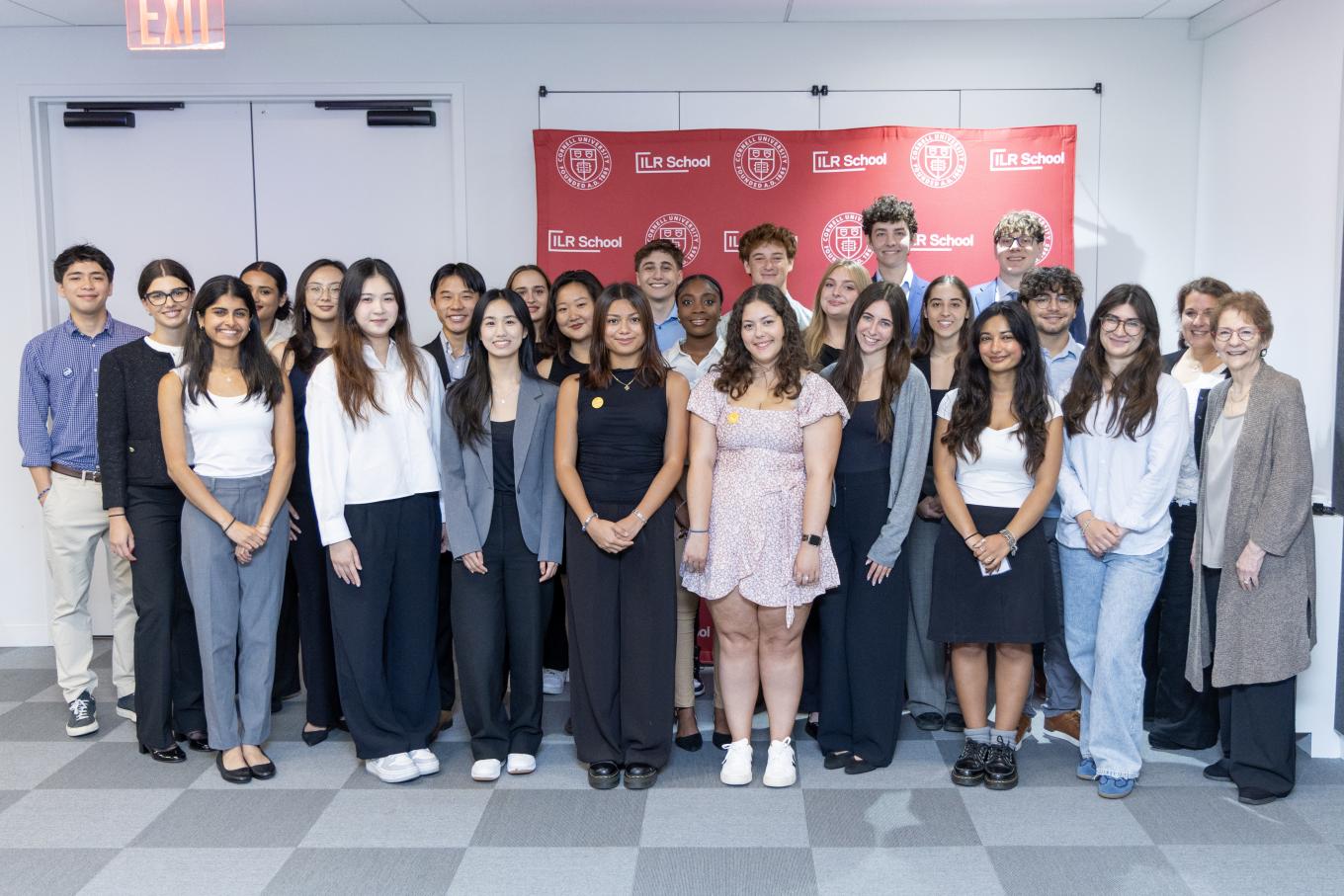
“You came to this program worried about whether you could succeed, and you did,” said Esta Bigler, director of ILR's Labor and Employment Law Program and program director of High Road NYC. Bigler left the 25 students with some parting advice: “Please, remember to be intentional. Always be authentic, not transactional. Listen with curiosity, and always think about how you can support and help others be true citizens of this country. It has been my pleasure to work with you and get to know you this summer. I will miss you. I wish you a great year back at ILR and a very fulfilling and full life.”
“Students, you've really embraced this opportunity with passion and purpose over the course of the summer,” said Beachler. “It's been a hard summer in lots of ways, but your commitment to making the world a better place by supporting and learning from your partners has served as a small slice of hope for me during this time. You've shown us that through empathy, collaboration and commitment, we can achieve positive, progressive and enduring change.”
